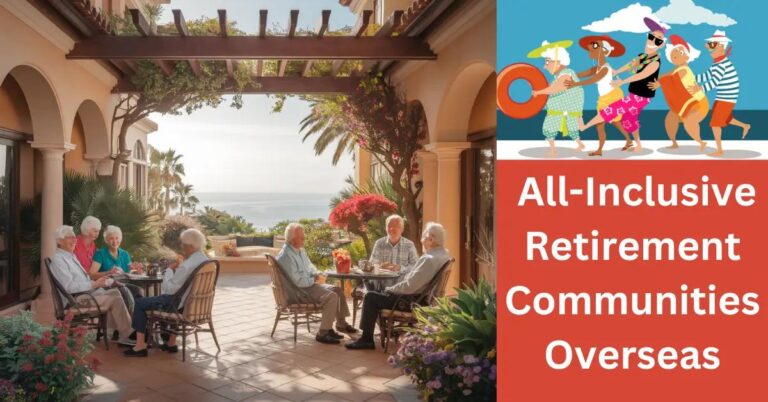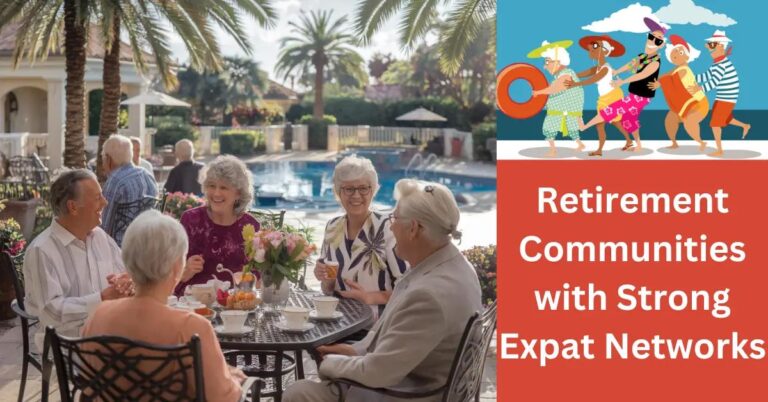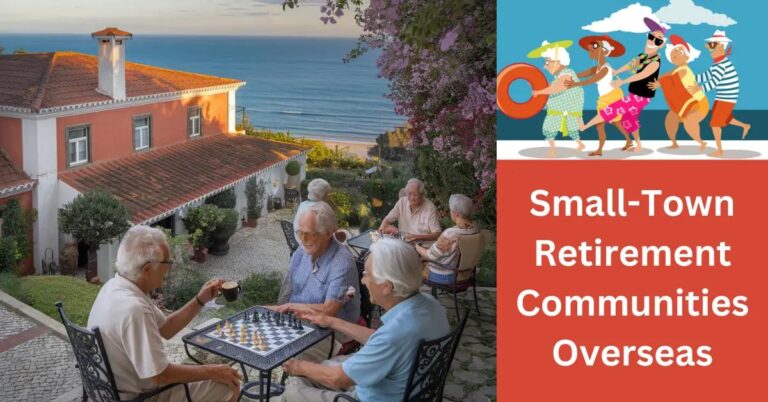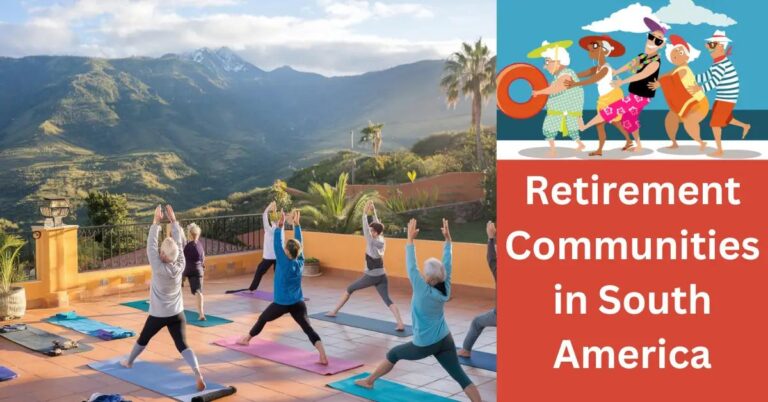TL;DR:
- Gated retirement communities in the Philippines prioritize safety with gates, guards, and surveillance.
- These communities offer amenities like pools, gyms, parks, and social halls.
- Monthly living costs vary from $1,000-$3,000 depending on lifestyle and amenities.
- Popular gated community locations include Tagaytay, Cebu, Davao, and Dumaguete.
- These locations offer diverse climates, vibrant cultures, and essential services.
- Retirees enjoy active social lives with events, activities, and dining experiences.
- Available amenities include healthcare, fitness programs, and technology access.
- Expats should consider visa rules, cultural integration, and financial planning.
- The Philippines provides a mix of affordability and quality for retirees.
Are you ready to retire in paradise? Imagine living in a secure, vibrant community where neighbors become friends and every day feels like a vacation. In the Philippines, gated retirement communities offer a blend of safety, luxury, and local charm. But are they really worth it? Join me as we explore the benefits, costs, and lifestyle of these communities to help you find your perfect retirement haven.
What Are the Benefits of Living in Gated Retirement Communities in the Philippines?
Living in a gated retirement community in the Philippines offers unique perks. These communities provide a safe and pleasant environment for retirees. They are designed with security in mind, complete with gates, guards, and surveillance. This focus on safety means these are some of the safest retirement places in the Philippines.
A gated community offers more than just peace of mind. It also fosters a sense of community and lifestyle. People enjoy shared spaces, group activities, and regular events. This active lifestyle helps you meet new friends and never feel alone. Many retirees find comfort in being part of a close-knit group that shares their lifestyle.
Amenities available in these communities include pools, gyms, and social halls. Residents enjoy parks and gardens for a relaxing stroll or a peaceful weekend. These spaces are perfect for people who love social events or want to enjoy the outdoors. The communities often offer services like housekeeping to make daily life easier.
To help you choose, here are some of the best gated retirement communities in the Philippines. Brentville International in Laguna has charming homes and lush green spaces. For urban living with lots of amenities, consider Ayala Alabang Village. Eagles' Nest in Cebu offers breathtaking views and a warm community vibe. Tagaytay Highlands, nestled in Tagaytay, offers both luxury and serene mountain views.
Deciding on a retirement home is important. Consider your lifestyle and what you enjoy most. Look into the amenities and communities in the places that catch your interest. Retiring in a gated community in the Philippines may be worth your consideration.
How Much Does It Cost to Live in a Gated Retirement Community in the Philippines?
Living in a gated retirement community in the Philippines can be both affordable and satisfying. For many, the cost of living is a big concern. It helps to ask: How much money do you need to retire comfortably in the Philippines? For a simple lifestyle, you might need about $1,500 to $3,000 each month. This estimate covers rent, food, and daily needs.
Can you retire in the Philippines on $1000 per month? It's difficult but possible if you live modestly and choose local goods. Some areas are more affordable than others, making it easier to stick to this budget. Yet, it could mean fewer luxuries and more basic living.
Costs vary based on your lifestyle preferences. Luxury communities provide top-notch services and amenities. These could include large swimming pools, spas, and more personal services. For these perks, prices might rise to above $3,000 a month.
Affordable senior living options also exist, with fewer extras but still offering a sense of community and safety. Monthly expenses for these communities can range from $1,000 to $1,500.
Besides rent, retirees should budget for utilities, like water and electricity. Monthly utilities can cost between $50 to $100. Amenities can include access to clubhouses or fitness centers, which may have additional fees.
When planning, compare costs with other countries. The Philippines often offers lower costs and a warm climate, making it appealing. Ensure you consider all ongoing costs of living in a gated senior community.
To manage your budget well, create a detailed plan. Know your fixed costs and allow for unexpected expenses. Making a budget helps ensure that you enjoy your retirement years peacefully and without stress.
What Amenities and Services Can Retirees Expect in these Communities?
Retiring in a gated community in the Philippines can be a great choice for many. When looking at luxury or small gated communities, the amenities vary. Healthcare is a top concern. Residents can expect trained nurses and access to reliable healthcare services. Quality medical care is vital, and having it near ensures peace of mind.
Staying active and social is crucial for retirees. There are many recreational and social activities for seniors to enjoy. These communities often offer clubs, hobby groups, and social gatherings. Such activities keep the mind sharp and create bonds among residents.
Dining experiences are an integral part of the community lifestyle. Many communities feature facilities where you can enjoy local cuisine with others. This is a chance to savor the delicious flavors of the Philippines. Shared meals often become cherished social events.
Wellness and fitness programs boost health and happiness. From yoga to aerobics, there is usually a range of options. These programs help retirees stay fit and energetic.
Technology access is becoming more important for seniors. Many communities provide digital access to help stay connected with loved ones. Easy-to-use technology lets retirees stay updated on news and engage with family worldwide.
These amenities and services in the Philippines cater to various interests and needs. They enhance life quality, making the decision to retire here rewarding. Being part of such a vibrant community can be fulfilling in the years ahead.
Where Are the Most Popular Places for Gated Retirement?
Many retirees wonder, "Where is the best place to live in the Philippines for retirees?" The answer lies in personal preference, but let's explore! For sunshine lovers, places like Tagaytay and Baguio offer cool climates. Tagaytay is close to Manila, giving retirees city comforts within reach.
Dumaguete is a top pick for affordable gated retirement communities in the Philippines. Known as the "City of Gentle People," it has a welcoming vibe. Dumaguete's cost of living is low, and it offers vibrant cultural spots.
For beaches and sunshine, Cebu and Davao stand out. Both cities have popular retirement destinations in the Philippines. They provide urban life while staying near nature. Cebu has historical sites, while Davao boasts clean streets and modern healthcare.
In terms of climate, many retirees choose cities with mild weather. Baguio's mountain climate is perfect for those avoiding tropical heat. Tagaytay's cooler air is also ideal, blending natural beauty with comfort.
Now, let's talk about what makes these places special: cultural and recreational hotspots. Cebu has its Sinulog Festival, a grand celebration full of color and music. Meanwhile, Davao holds the Kadayawan Festival, honoring its rich harvest and culture.
Proximity to necessary services like hospitals and shops is crucial. Many gated communities in urban areas provide easy access to essential services. Rural spots might require more planning, but they offer peace and space.
When comparing city versus rural retirement, each has its charm. Cities promise convenience, while rural areas gift tranquility. Choosing the right spot depends on lifestyle desires and priorities, making the Philippines a versatile retirement choice.
What Should Expats Consider When Retiring in a Gated Community in the Philippines?
When thinking of retiring in the Philippines, expats should first understand visa rules. US citizens can stay for three years on a tourist visa. After this, they must leave or renew their visa. A special retirement visa also exists, which offers more ease for long-term stay.
Next, consider the cultural and social switch. Living in the Philippines means diving into a vibrant and unique culture. Understanding local customs helps with smoother integration. Many expats find the warmth and hospitality of the people welcoming. Engaging in local festivals and events can aid in feeling at home.
Language can be a barrier, though English is widely spoken. This eases communication issues for most expats. Yet, learning basic Filipino phrases can help make local friends and feel more connected.
Money and health are crucial things to plan. The Philippines offers affordable healthcare, but it's wise to consider private insurance. With costs lower than many Western countries, retirees can live comfortably, yet it's best to manage finances carefully.
Fitting into the community is important for a fulfilled life. Retirement in gated communities offers a mix of global and local friends. Many communities offer events and gatherings that bring people together. This means having a chance to join clubs, volunteer groups, or even simple morning walks with neighbors.
Retiring in a gated community in the Philippines lets expats enjoy a mix of comfort and adventure. But the key is understanding and planning ahead for the move. This ensures a happy and worry-free life in the new home.
Conclusion
Living in gated communities in the Philippines offers safety, community, and engaging lifestyles. You'll find great amenities and services tailored for retirees seeking comfort and connectivity. Cost-friendly options make it viable to live well without breaking the bank. Communities boast healthcare, social events, and recreation, ensuring you enjoy your golden years. Popular locations offer warmth and cultural vibrance with easy access to services. Prepare for your transition and embrace the rich culture, ensuring a fulfilling experience. When considering your move, focus on legal aspects and build strong local connections for a smoother adaptation.







